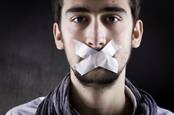This article is more than 1 year old
After Trump, Congress, Supreme Court Justice hit out at tech giants' legal immunity, now FCC boss wants to stick his oar in, too
Pai says he wants to 'clarify' Section 230's 26 words even though he probably can't do anything about it
On Thursday, FCC chairman Ajit Pai declared his intention to clarify a law he may not have the authority to interpret.
Citing concerns about Section 230 of the US Communications Decency Act, which more or less protects online service providers from liability for content created by their users, the boss of America's comms regulator said he plans "to move forward with a rulemaking to clarify" the meaning of the statute.
"Social media companies have a First Amendment right to free speech," Pai opined. "But they do not have a First Amendment right to a special immunity denied to other media outlets, such as newspapers and broadcasters."
But Santa Clara University law professor Eric Goldman, who has written extensively on Section 230, expressed doubt that there is a valid legal framework for what Pai wants to do as boss of the FCC.
"The fact that they're making the pre-announcement with any support makes me skeptical about the legitimacy of the announcement," he said in a phone interview with The Register.
"There should be some formal piece of paper that says what the FCC is doing. Instead, all we get is a cryptic announcement on Twitter. It sure seems like the announcement has campaign-related benefits and the timing would be consistent with that."
Bias versus BS
Both Republicans and Democrats have raised concerns that Section 230 affords internet companies too much protection.
In May the Trump administration said the law should not provide immunity for social media companies that remove content to censor "certain viewpoints," a statement based on the unsupported claim that social media platforms are biased against conservative content.

US Supreme Court Justice flames lower courts for giving 'sweeping immunity' to Facebook, YouTube, etc when it comes to harmful content
READ MOREA 2018 survey by non-profit MediaMatters "found no evidence that conservative content is being censored on Facebook." Meanwhile, a glance at the top 10 links interacted with daily on Facebook shows it is dominated by conservative material.
At the same time, Democratic lawmakers have expressed reservations about the law because it hasn't sufficiently motivated online platforms to police misinformation, hate speech, and illegal content.
Efforts to rethink the law haven't been well received. A draft proposal from the US Department of Justice to amend Section 230 was panned last month by Representative Frank Pallone Jr. (D-NJ), who points out that Congress gets to rewrite legislation, not the President.
"President Trump’s Section 230 legislation is a mess, but one thing is clear – the proposed changes would make it harder to stop the misinformation and disinformation spread by the President and foreign governments," he said.
Hey, he asked!
But as Pai notes in his statement, the US Commerce Department asked Congress to clarify Section 230 and US Supreme Court Justice Clarence Thomas made clear that he was willing to review the liability protections afforded to internet platforms.
Pai's remarks coincide with Twitter's and Facebook's removal of a dubiously sourced New York Post story about Hunter Biden, takedowns that produced predictable objections from President Trump about the need to undo Section 230.
Twitter said it removed links to the story because it violated its rules on distributing private information and hacked materials. Facebook said it was reducing the visibility of the story in accordance with its efforts to reduce misinformation.
A call to arms
May's White House "Executive Order Preventing Online Censorship" directed the Attorney General and the National Telecommunications and Information Administration (NTIA) to file a petition for rulemaking with the Federal Communications Commission (FCC).
The telecom watchdog has been asked to propose regulations clarifying when content removal done under the auspices of Section 230 protection becomes unprotected editorial discretion. Back then US Senator Richard Blumenthal (D-CT) called the directive "a blatant attempt to use the full power of the United States government to force private companies to lie for the President."
Pai insists he can take action to clarify the meaning of the law, something already fairly well established through US court rulings. "The Commission’s General Counsel has informed me that the FCC has the legal authority to interpret Section 230," he said in his statement.
Not everyone agrees. "The FCC does not have the authority to rewrite the law, and Ajit Pai can't appoint himself commissioner of the speech police," said US Senator Ron Wyden (D-OR) in a statement posted to Twitter.
Wyden should know. He's one of the co-authors of the 26 words that make up Section 230, along with former Representative Chris Cox (R-CA). In comments filed last month in accordance with the rulemaking process, Cox wrote, "Congress not only did not give the Commission authority to regulate the internet in Section 230, but it expressly intended this law to prevent that result." ®
